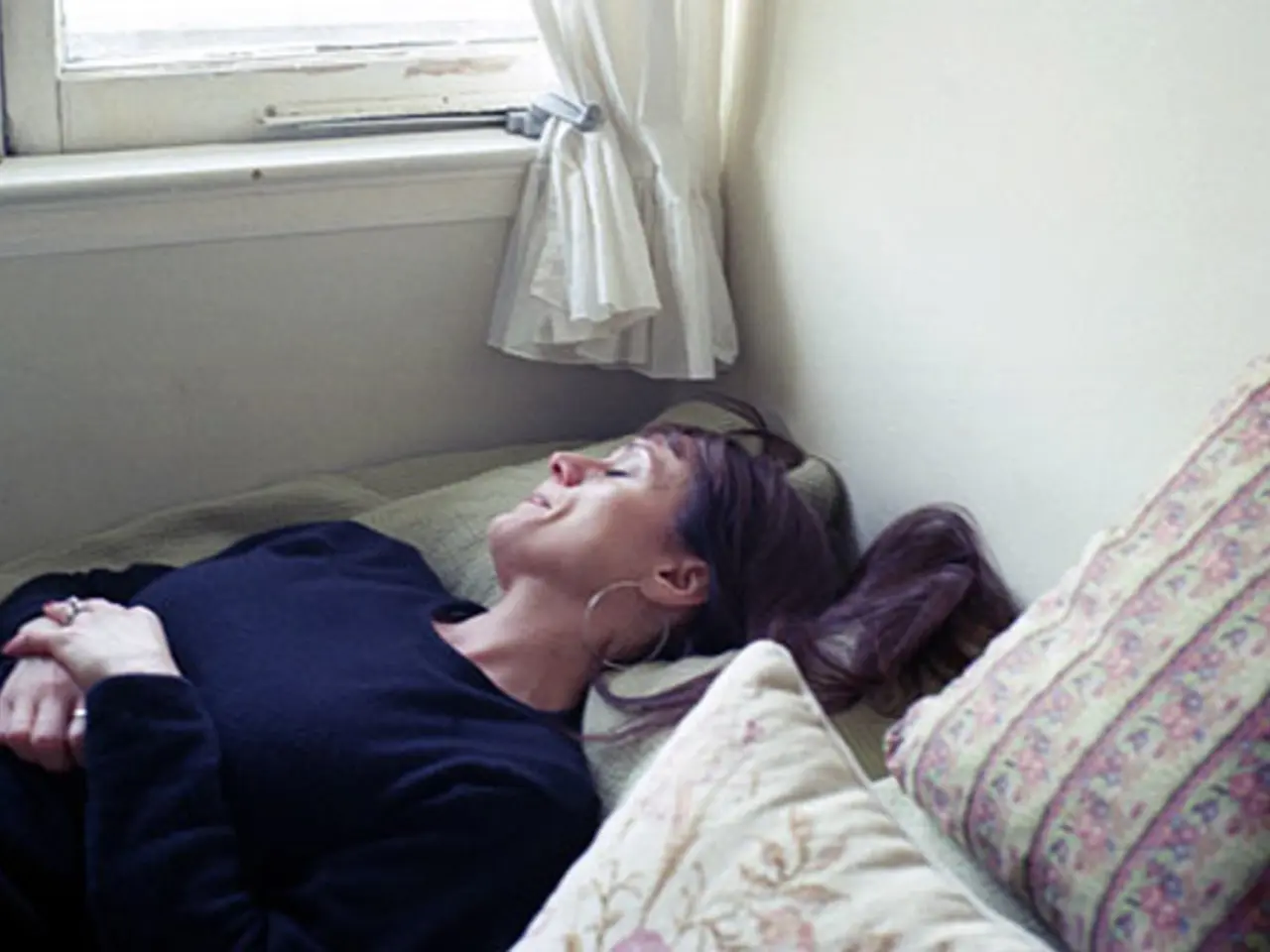Insomnia caused by a combination of physical and psychological factors
Managing Insomnia Due to Anxiety: Understanding and Treating Psychophysiological Insomnia
Insomnia, a common sleep disorder, can be a result of anxiety about sleep. This type of insomnia, previously known as psychophysiological insomnia, is now classified under the category of chronic or long-term insomnia in the International Classification of Sleep Disorders, 3rd edition (ICSD-3).
The symptoms of this condition include overall poor-quality sleep, waking too early in the morning, and only sleeping for a short amount of time. If these symptoms persist for at least 3 nights per week for a period of 3 months, they may be considered chronic.
The way we think about sleep can perpetuate insomnia, causing anxiety about sleep and conditioning to sleep poorly. Common triggers for insomnia include stressful events or a sudden change in sleep schedule.
Fortunately, there are treatment options available. Cognitive Behavioral Therapy for Insomnia (CBT-I) is a highly effective treatment for insomnia that results in long-term improvements. It is recommended as the first-line treatment by mental health professionals.
CBT-I targets the psychological and behavioral factors that perpetuate insomnia. It involves teaching more helpful ways to think about insomnia and sleep hygiene practices such as avoiding screen time before bed. Sleep hygiene is a component of CBT-I, involving steps such as limiting alcohol and caffeine intake before bed, and using the bed only for sleep and sex.
If individuals wake up in the middle of the night and are unable to fall back asleep, they should avoid checking their phone or turning on the TV, and instead try breathing exercises, meditation, or moving to a different room to do something quiet and relaxing. Journaling or writing down worries and concerns can also reduce anxious thoughts or feelings before bed.
It is important to contact a doctor for advice if individuals have trouble with sleep quality on multiple nights per week. People should see a doctor or a sleep specialist if they are routinely having trouble with sleep quality or quantity multiple nights a week.
A 2002 study reported that people with psychophysiological insomnia tended to be excessively concerned about sleep and the daytime effects of not getting adequate sleep. The goals of CBT-I are to establish a regular sleep cycle and reduce anxiety about sleep.
In conclusion, psychophysiological insomnia symptoms exist within the broader category of chronic insomnia disorder in ICSD-3, rather than as a separate diagnostic category or subtype. CBT-I is a valuable tool in managing this condition, offering long-term improvements and reducing anxiety about sleep. If you are struggling with insomnia, consider seeking help from a mental health professional or a sleep specialist.
[1] Source: International Classification of Sleep Disorders, 3rd edition (ICSD-3)
- Insomnia, a sleep disorder, can stem from anxiety about sleep, which falls under the category of chronic insomnia in the International Classification of Sleep Disorders, 3rd edition (ICSD-3).
- Symptoms such as poor quality sleep, waking early, and brief sleep duration for more than three nights weekly for three months could indicate chronic insomnia.
- Cognitive Behavioral Therapy for Insomnia (CBT-I), recommended by mental health professionals, addresses the psychological and behavioral causes of insomnia.
- CBT-I incorporates sleep hygiene practices, like avoiding screen time before bed, limiting alcohol and caffeine intake, and using the bed only for sleep and sex.
- If individuals find themselves awake at night and can't fall back asleep, they should consider practicing breathing exercises, meditation, or moving to a quiet, relaxing space instead of using their phone or turning on the TV.
- Seeking professional advice is crucial for managing insomnia, so if troubled with sleep quality on multiple nights per week, it's essential to consult a doctor or sleep specialist.




